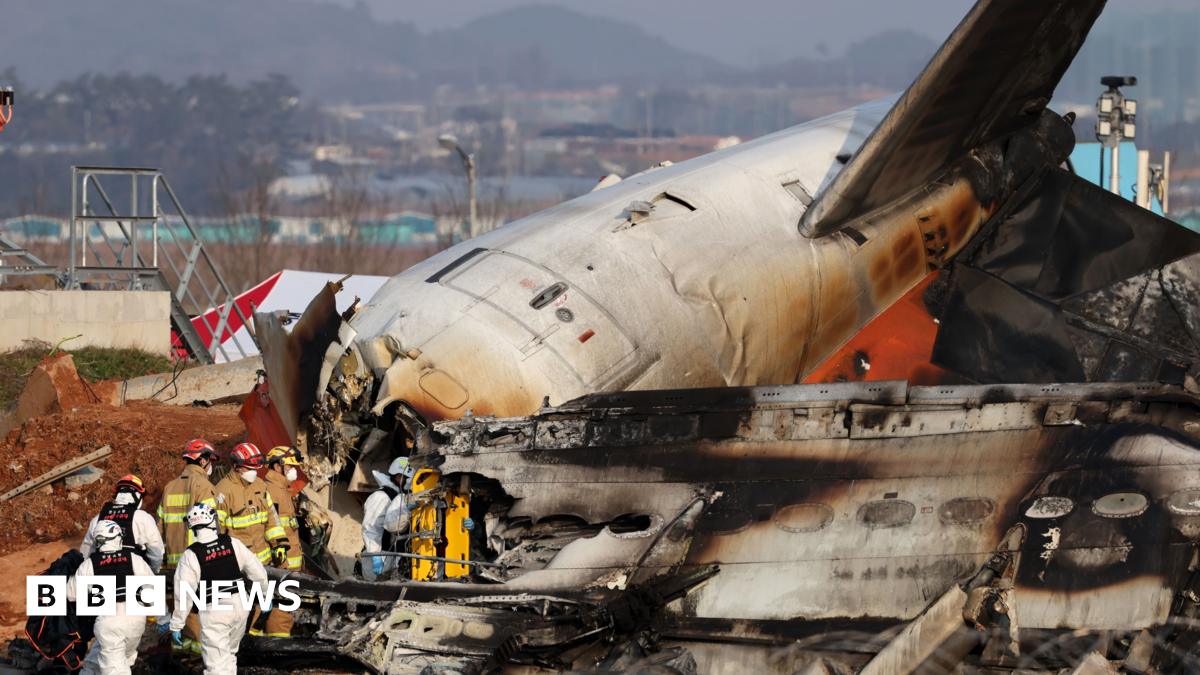The flight, 7C2216, was a Boeing 737-800 operated by Jeju Air, Korea’s most popular budget airline.
The plane arrived in Muan at about 09:00 local time (00:00 GMT).
A South Korean transport official said that the plane had been attempting to land but was forced to hold off after air traffic control gave a bird strike warning – an alert about the risk of a collision with birds.
About two minutes later, the pilot called in a Mayday and air traffic command gave permission for the plane to land from the opposite direction, the official said.
One passenger on the flight messaged a relative, saying that a bird “was stuck in the wing” and that the plane could not land, local media reported.
One video appears to show the plane touching down without using its wheels or any other landing gear. It skidded down the runway and crashed into a wall before erupting into flames.
An witness told the South Korean news agency Yonhap that they heard a “loud bang” followed by a “series of explosions”.
Videos from the scene show the plane ablaze with smoke billowing into the sky. Fire crews have since extinguished the fire.
Lee Jeong-hyun, the chief of the Muan fire department, told a televised briefing that the tail section of the plane was identifiable but “one cannot recognise the shape of the rest of the plane”.
He said that the bird strike and bad weather may have caused the crash – but that the exact cause is still being investigated. The flight and voice recorders from the plane have been recovered.
The head of Jeju Air’s management said that the crash was not due to “any maintenance issues”, the Yonhap news agency reported.
The South Korean transport department said that the head pilot on the flight had held the role since 2019 and had more than 6,800 hours of flight experience.

